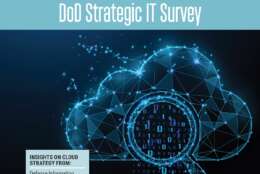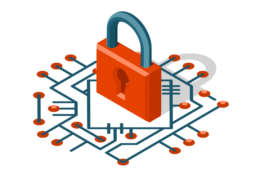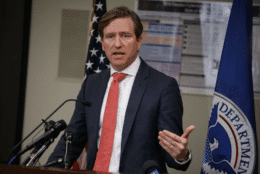Hubbard Radio Washington DC, LLC. All rights reserved. This website is not intended for users located within the European Economic Area.
On Air: Federal News Network
Akamai
-
Federal News Network reached out to specific DoD IT leaders - for this Defense Department Strategic IT Survey - with precise questions about how they are transforming their systems and applications into cloudenabled assets.
September 27, 2019 -
Hosted by Dr. Richard Shurtz and Jim Russ. Sponsored by Stratford University. As tensions in relations. rise, the Iranians are increasing their hacking attacks on U.S. targets. And we meet the mathematician and entrepreneur who co-founded Akamai Technologies.
June 24, 2019 -
By minimizing access to applications based on requirements of the specific user, Zero Trust security removes the need to rely on the traditional boundaries of a network perimeter.
March 27, 2019 -
DHS directed agencies on Jan. 22 to take four steps to protect against DNS tampering attacks, including adding multi-factor authentication to servers and software.
January 28, 2019 -
What are the data management trends in 2019? Find out when Patrick Sullivan, director of Security Technology and Strategy at Akamai, joins host John Gilroy on this week's Federal Tech Talk. January 8, 2019
January 07, 2019 -
Randy Wood, vice president of U.S. public sector sales for Akamai, said zero trust is not a new idea, but one that is about five years old. It promotes the simple concept that trust is not an attribute of location, and just because an employee is trusted inside perimeter, it doesn’t mean he or she should be granted access to all the information.
January 01, 2019 -
Akamai Technologies is positioned to assist in managing the cybersecurity of these devices. This is because it has a network around the world that is comprised of 250,000 servers in over 2,700 locations. This gives them the first filter when devices seek to communicate over the Internet.
David Yoon, senior director of Akamai’s public sector, discussed this recently with Federal News Radio at the Akamai Government Forum in Washington, D.C.July 09, 2018 -
Patrick Sullivan, global director of security strategy at Akamai Technologies, believes this approach can leave networks vulnerable.
July 09, 2018 -
Rob SanMartin, sales director for Akamai, said that in today’s environment, the speed at which attacks take place is unprecedented.
July 09, 2018 -
Tom Ruff, the vice president of public sector for Akamai, makes the case for more funding, education and the managing of bots.
June 04, 2018 -
Cybersecurity experts from federal agencies and industry say the best defense starts with basic "blocking and tackling," and then a layer of ad lib to throw off hackers who are reading from the same cyber defense cookbooks.
March 29, 2017













